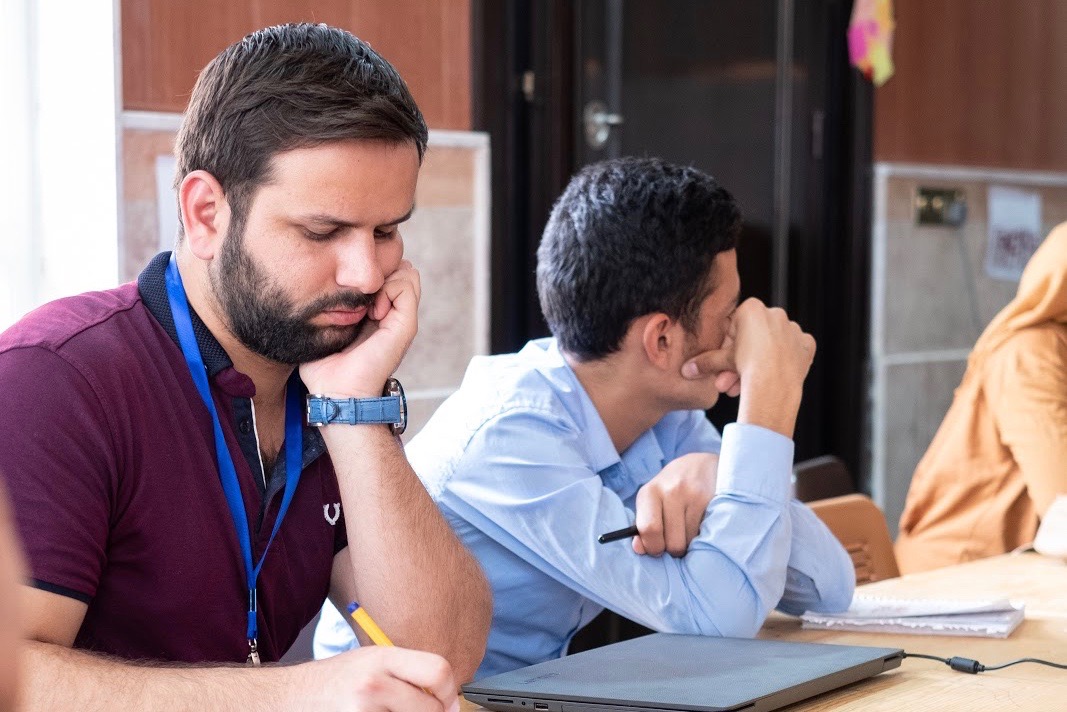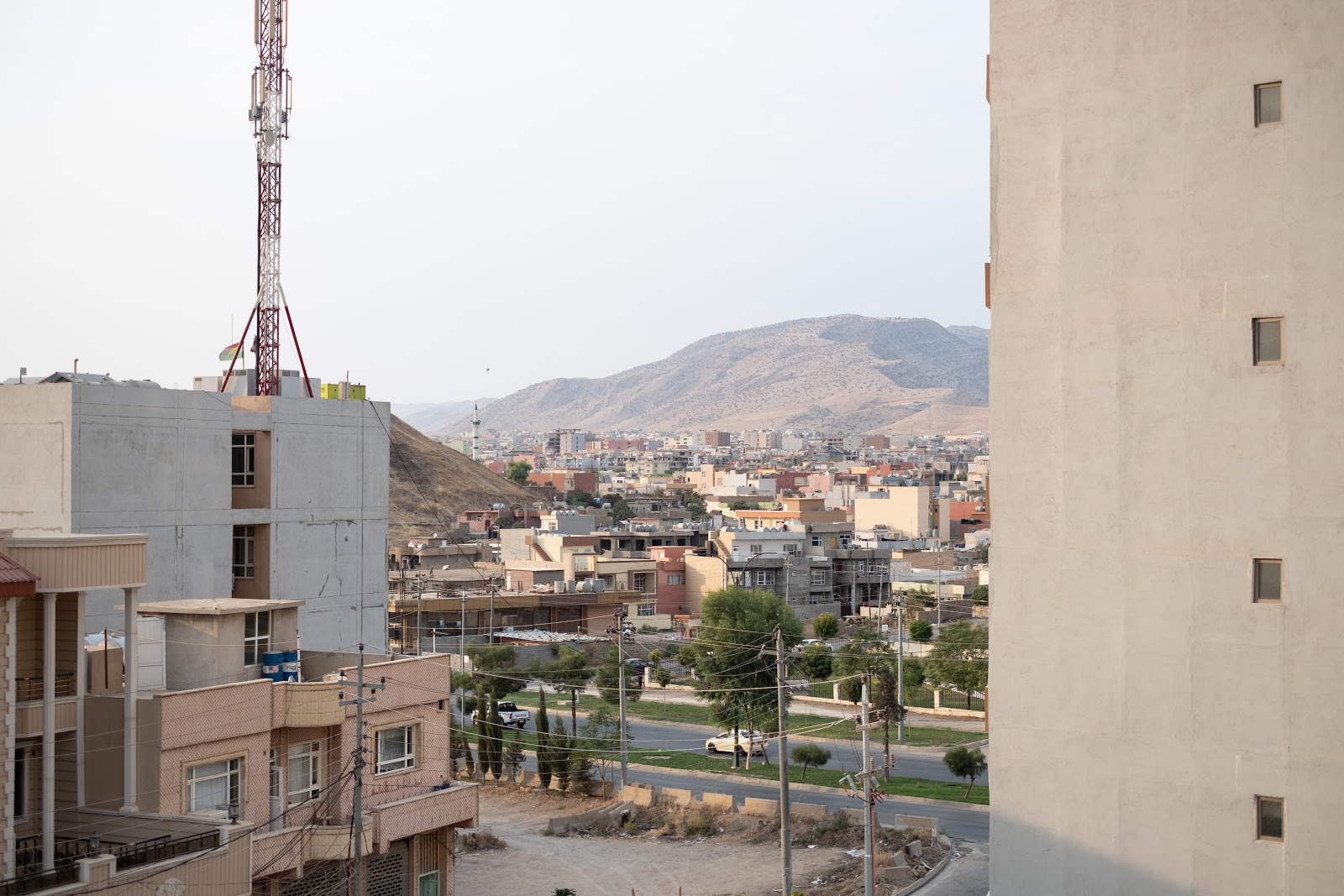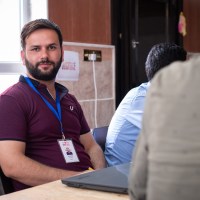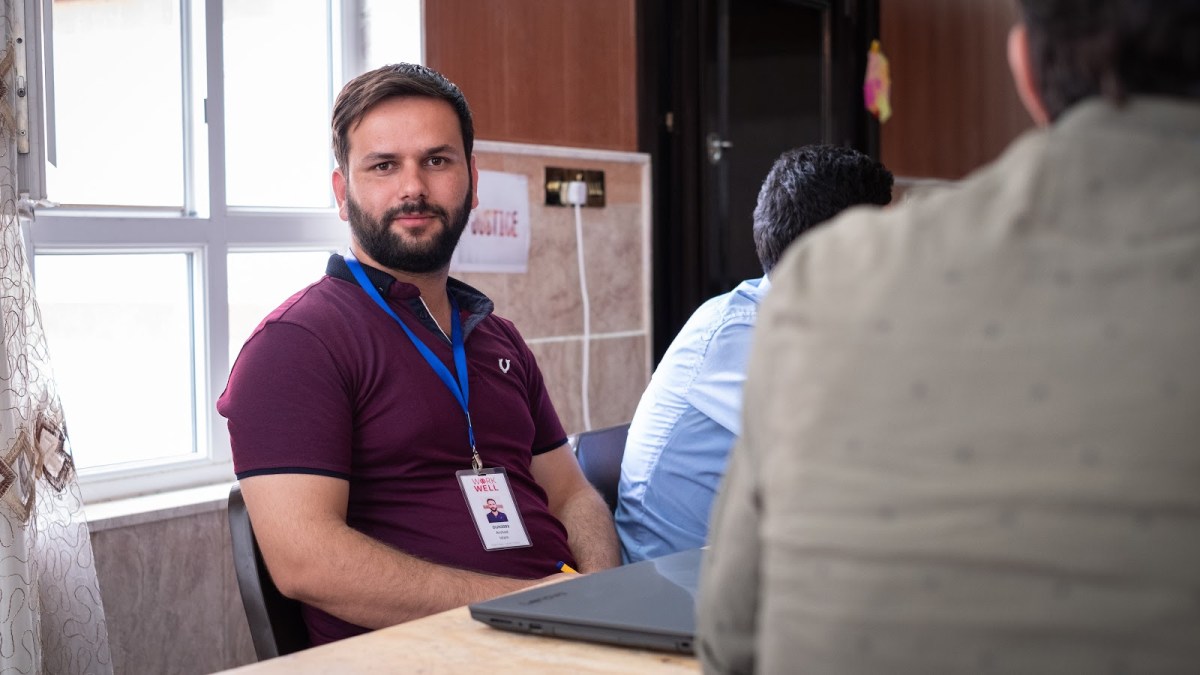When we look back at our lives and try to pinpoint a defining moment of change, it can be hard. So much of the change that happens in our lives is gradual—we often don’t recognize that we are a different person until it’s pointed out to us. Sometimes we outgrow ideas, sometimes relationships. But most of us can remember a time we realized that we had grown into a different person than we had been before.
Many people who experience severe trauma can tell you the exact moment that everything changed. That’s true for many who fled the Iraqi city of Mosul, when ISIS took over control of the city in June 2014.
It’s true for Arshad. He remembers it all.
A Terrifying, Defining Moment
Like so many Iraqis and Syrians whose lives were uprooted by war, life became reoriented around one single point in time—before war started, and after fleeing war.
Before ISIS, Arshad lived in a big house in Mosul with his family. He was a student at the University of Mosul, in the Department of Science, studying biophysics. He worked hard, did well in school (second in his class), and was taking one step at a time into his future.
1 a.m.—that’s what time ISIS changed everything for Arshad and his whole neighborhood. His mom and sisters were sleeping. Some in the house were up late watching TV when an announcement came on that it wasn’t safe to be in the city. At the same moment, Arshad heard his neighbors pouring into the streets. In terror, they woke everyone up, and they joined the others in the dark street. Arshad’s mom and sisters were squeezed into a neighbor’s car to head to safety outside the city. Arshad and his brothers, young men without a car, followed behind on foot.
That became the pivotal moment in their lives. As they fled due east to the next town, a six-hour walk on streets packed with panicked families still in their pajamas, they didn’t know if trucks full of ISIS fighters would catch them from behind.
As they walked, the trauma of the night drew an invisible line in their lives separating “before” from “after”.
The next day, Arshad arrived at what became Iraq’s largest refugee camp. The first four months, he tells us, were awful. Everyone in his family, they were all so sad—it was difficult to accept this life in a refugee camp after the life they had in Mosul.
Arshad moved to another city, to finish his studies. After graduating, he was able to return to his family, where they rented a small house in a nearby city. Once they moved out of the refugee camp, they began to breathe a little bit easier. Arshad began the difficult search for work, and he was able to resume an old past time, taking long walks in nature, as he’d done in Mosul before everything changed.
While it’s true that daily life was still very much defined by that 1 a.m. moment they had to flee their home in Mosul, Arshad began to experience a second set of “before and after” moments.

New Defining Moments at WorkWell
It was an entirely random message from a friend in the south of Iraq that first pointed Arshad to the opening of a WorkWell campus in his new city. Arshad found where assessment tests were being held, took the test, and two weeks later he got a phone call that said he was accepted.
“The test was so easy for me…so easy!” he said with a smile.
The economy in Iraq is slowly improving from the wartime low that paralyzed so much of the country, but it’s still not easy to find a job. And an economy in the early stages of recovery isn’t the best time to find work in biophysics. Arshad needed to develop new skills that would put him on a path to work. And that’s exactly what he found at WorkWell.
When Arshad graduated from WorkWell in October, he was one of the students chosen to make a speech in front of the student body, family, and friends. In his speech, Arshad explained his experience in very clear terms.
My experience at WorkWell was very beautiful, and so exciting for several reasons.
Before WorkWell, I didn’t know English grammar, really. So I was shy to speak and practice the language with other people. But now I can speak English with other people, so WorkWell bridged the barrier of shyness and fear.
Before WorkWell, I was not good at using computers. But now I can use computers easily, and Microsoft applications without any problem.
I met new friends from Syria, and from each part of Iraq. We share ideas and skills with each other. WorkWell collects our nationalities and religions in one project–Kurdish, Arabic, Christian, Yazidi–without distinguishing.
Before and after—defining language, but instead of being tinged with terror, Arshad’s life is now rich with possibility.

A New Future
That 1 a.m. flight for his life still impacts Arshad in many ways. He understandably figures safety highly in his hopes for the future—for him and his country. But Arshad is no longer stuck in an old defining story. WorkWell gave him the chance to redefine his future.
When we last met, he was focused on finding a job to help his family—a job that would allow him to help others…an organization, school, or hospital. “I love to help people! I love to help students.” Especially displaced students, he said.
“WorkWell collects our nationalities and religions in one project–Kurdish, Arabic, Christian, Yazidi—without distinguishing.”
Arshad continues to look for permanent work. He also thinks about studying for his master’s degree abroad if he can find a scholarship. Regardless of which direction he goes in life, because of the hard work Arshad invested into his time at WorkWell, he has more options than he ever had before.
“In the future, I hope this project will extend to all parts of Iraq and the Kurdistan region.” Arshad tells me. We would love to make that happen.


